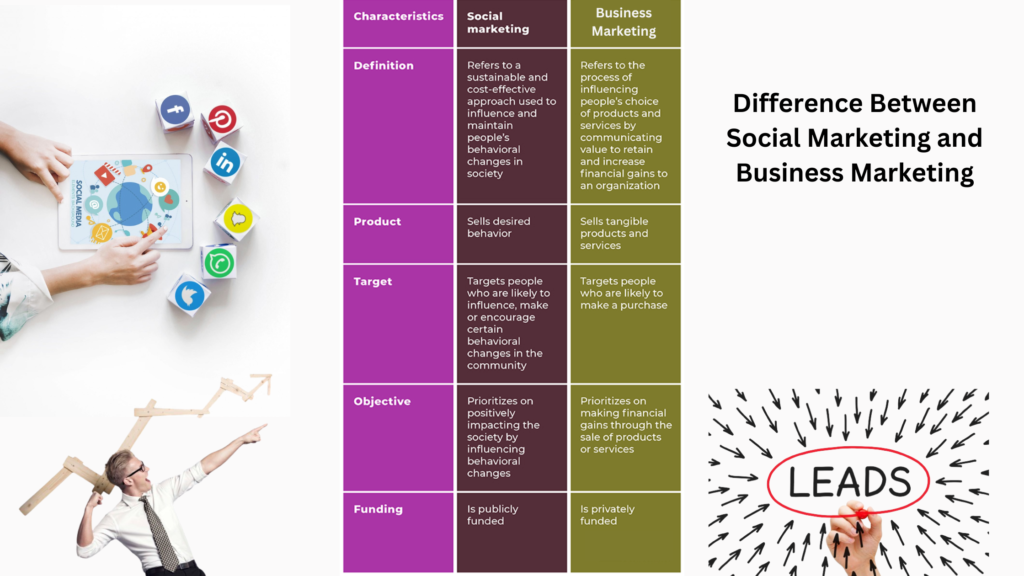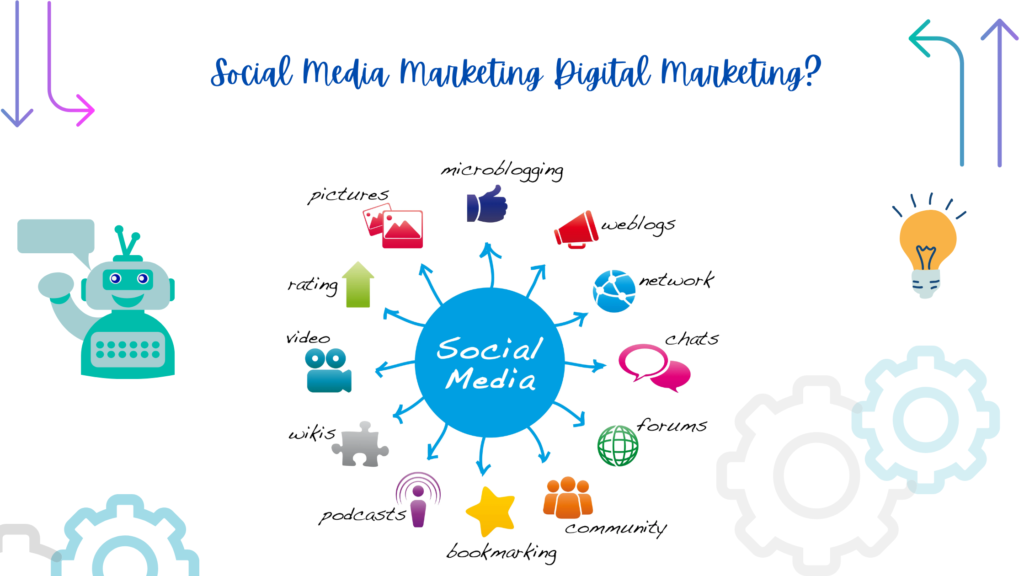Understanding the Difference Between Social Marketing and Business Marketing

Marketing encompasses diverse approaches, with social marketing and business marketing standing out as distinct yet complementary strategies. While both involve promoting products, services, or ideas, their underlying goals and methodologies diverge significantly.
Social Marketing: A Catalyst for Societal Change
Social marketing is a powerful tool for driving positive societal transformation. Unlike traditional business marketing, its prime objective is not profit generation but rather fostering beneficial behavioral changes within communities. This approach targets specific demographics or segments of society, aiming to influence attitudes, beliefs, and actions for the greater good.
The core mission of social marketing is to create measurable social impact. Campaigns may focus on raising awareness about critical issues like public health, environmental conservation, or social justice. Success is measured by the degree of behavioral change or adoption of desired actions within the target audience.
Key Features of Social Marketing:
- Behavior Change: Social marketing seeks to influence behavior, attitudes, or beliefs to achieve societal benefits.
- Target Audience: The primary focus is on reaching specific demographics or communities that can benefit from behavioral change.
- Goals: Social marketing aims to achieve measurable social impact rather than financial gains.
- Metrics: Success is often measured by changes in behavior, attitudes, or adoption of desired actions within the target audience.
- Examples: Anti-smoking campaigns, recycling initiatives, public health awareness programs.
Prominent examples of social marketing include anti-smoking initiatives, recycling campaigns, and public health awareness programs. These efforts leverage various channels and techniques to inspire positive change, often through compelling messaging, community engagement, and strategic partnerships.
The Power of Storytelling in Social Marketing
One of the most effective tools in social marketing is the art of storytelling. Crafting compelling narratives that resonate with the target audience can deeply influence attitudes and behaviors. By weaving together relatable characters, emotional narratives, and clear calls to action, social marketers can create powerful campaigns that inspire change.
Leveraging Data and Insights
Effective social marketing campaigns rely heavily on data and insights to tailor their strategies and messaging. By conducting extensive research and gathering demographic, behavioral, and psychographic data, social marketers can gain a deeper understanding of their target audience’s motivations, barriers, and influencers.
Business Marketing: Fueling Commercial Success
In contrast, business marketing is driven by the pursuit of profitability and market dominance. Companies employ business marketing strategies to promote their products or services, with the ultimate goal of generating sales and revenue. This approach involves analyzing consumer behavior, identifying target market segments, and crafting tailored strategies to reach potential customers effectively.
Business marketers meticulously study customer needs, preferences, and purchasing patterns to develop compelling value propositions and marketing campaigns. Success is measured by tangible metrics such as sales volume, market share, customer acquisition rates, and return on investment (ROI).
Key Features of Business Marketing:
- Profit Orientation: Business marketing is profit-driven, aiming to increase sales and revenue for a company.
- Customer Focus: Businesses identify and target specific customer segments based on their purchasing behaviors and needs.
- Goals: The main objective is to generate leads, acquire customers, and drive transactions.
- Metrics: Success is measured by sales volume, market share, customer acquisition, and return on investment (ROI).
- Examples: Advertising campaigns for consumer goods, B2B marketing for services, lead generation strategies.
Advertising campaigns for consumer goods, B2B marketing for services, and lead generation strategies are typical examples of business marketing in action. These efforts aim to build brand awareness, cultivate customer loyalty, and drive profitable transactions.
Leveraging Emerging Technologies
In the ever-evolving digital landscape, business marketers are increasingly leveraging emerging technologies to gain a competitive edge. From artificial intelligence and machine learning for predictive analytics and personalized recommendations to virtual and augmented reality for immersive product experiences, the integration of cutting-edge technologies is transforming the way businesses market their offerings.
Bridging the Divide: Cause Marketing
While social marketing and business marketing differ in their core objectives, they can converge through cause marketing initiatives. Socially responsible businesses often incorporate elements of social marketing into their overall strategies, aligning their brand with societal causes or ethical practices.
By championing sustainability, community engagement, or social responsibility, companies can leverage cause marketing to foster positive change while simultaneously driving business objectives. This approach allows organizations to contribute to societal well-being while bolstering their brand reputation and customer loyalty.
The Rise of Conscious Consumerism
In recent years, there has been a growing trend towards conscious consumerism, with consumers increasingly favoring brands that align with their values and demonstrate a commitment to social and environmental responsibility. This shift has prompted many businesses to adopt cause marketing strategies, not only to appeal to conscious consumers but also to genuinely contribute to positive societal change.
By aligning their marketing efforts with causes that resonate with their target audience, businesses can differentiate themselves from competitors, build stronger emotional connections with customers, and ultimately drive brand loyalty and sales.
In essence, social marketing and business marketing are distinct yet complementary endeavors. While social marketing focuses on driving positive societal change, business marketing concentrates on commercial success and profitability. However, by recognizing their unique goals and strategies, organizations can effectively leverage these approaches to create a more responsible and impactful marketplace.


